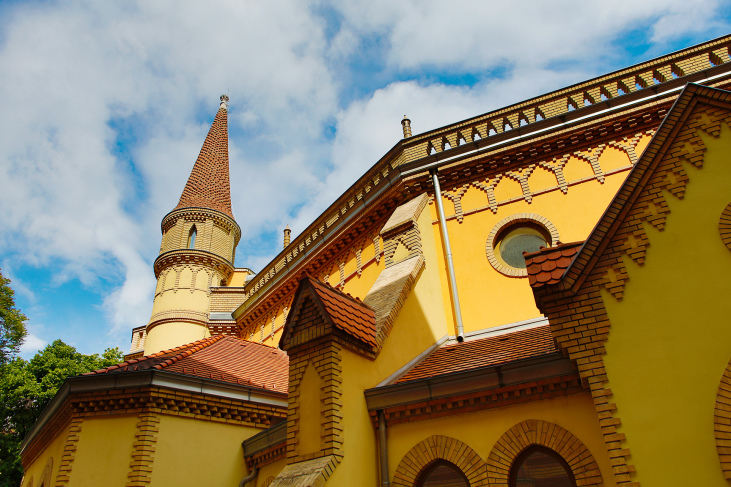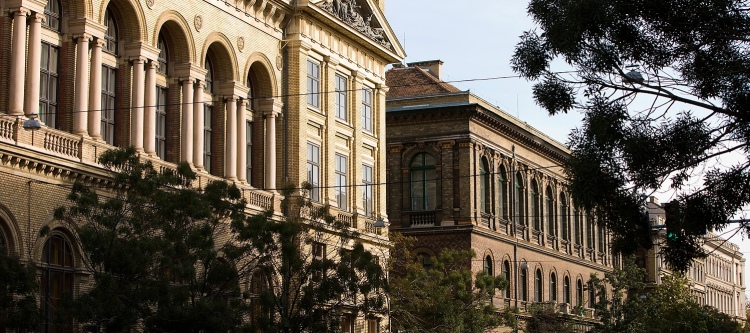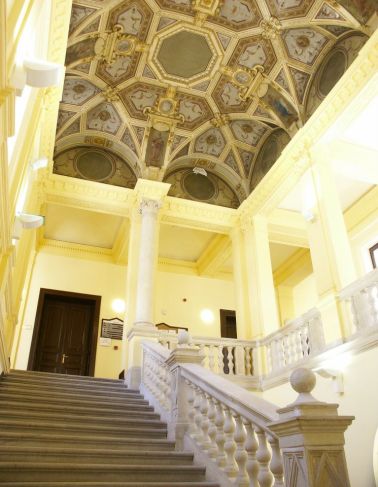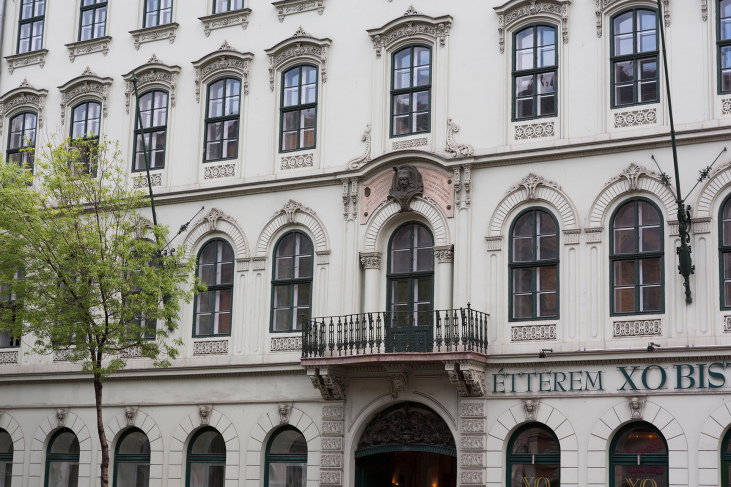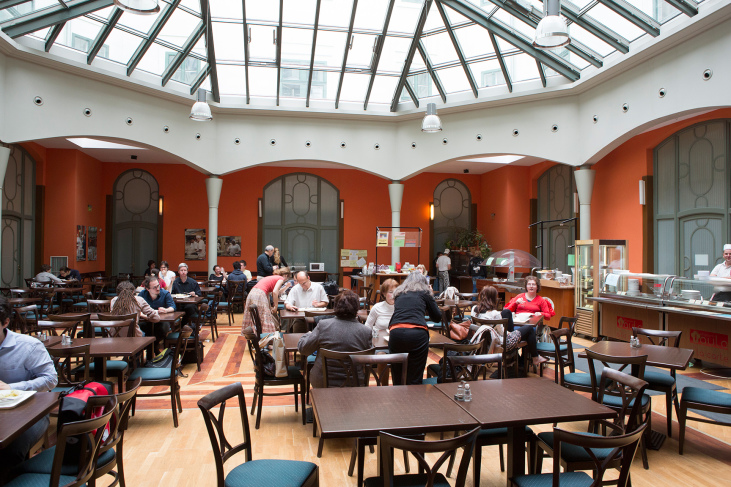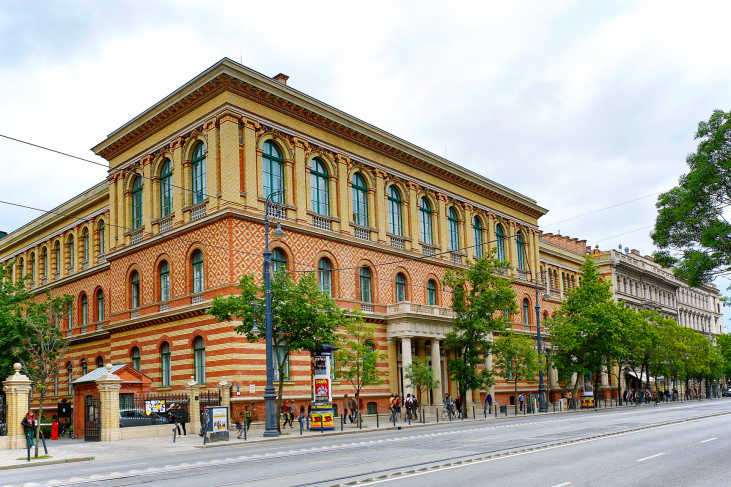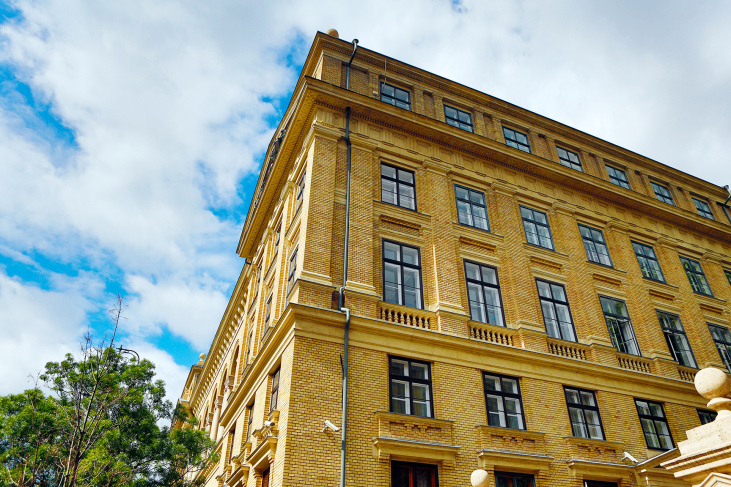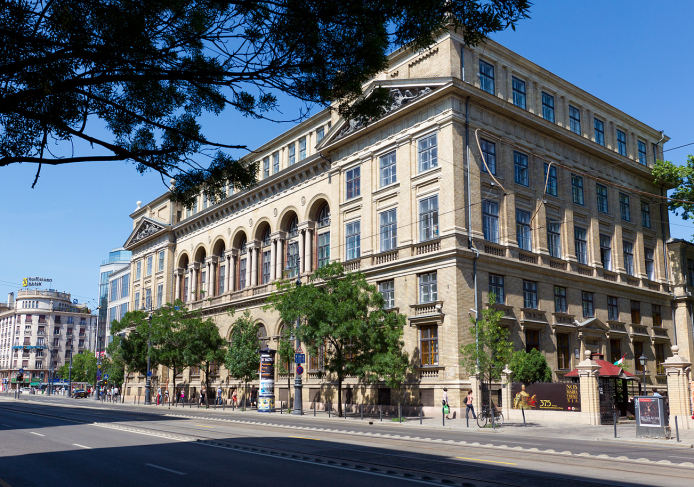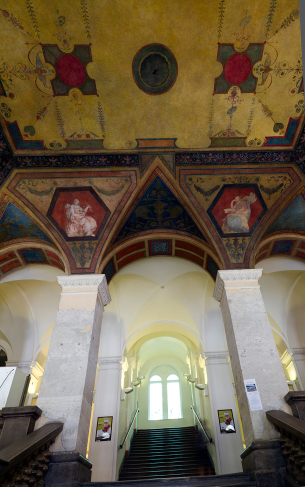Doctoral School of Philosophy
Doctoral School of Philosophy
Doctor of Philosophy (PhD)
Degree program
Doctoral
MAB 2016/6/XI/7/2/1000
English
4+4 semesters (2+2 years)
240
1
20
The goal of this program is to prepare students for obtaining their PhD degree through acquisition of latest research methodologies, participation in conferences and teaching expertise in higher education.
The Doctoral School of Philosophy offers doctoral studies in the following fields:
- Aesthetics
- Analytic Philosophy
- Ancient and Mediaeval Philosophy
- Art History
- Film, Media and Culture Theory (only with C1 English knowledge)
- Intercultural Philosophy
- Logic and Philosophy of Science
- Phenomenology
- Religious Studies
- Ethics and Political Philosophy
- Modern Philosophy
Detailed description: Doctoral School of Philosophy
Main aims of the doctoral school are to prepare students for obtaining the doctoral (PhD) degree through helping them to gain mastery in scholarly research and writing, encouraging their conference participation, and creating the opportunity for them to take part in the various activities of the home-department.
Find the structure of the program on this link
According to the latest entrance exam statistics the Faculty of Humanities is home of the best and most gifted students nationwide. With nearly 8,000 students, the Faculty has been a stronghold of scientific knowledge all over Hungary. Employers inside and outside Hungary are aware that a graduate from ELTE Faculty of Humanities will be of an extremely high standard. Coming to our faculty will increase your career prospects by the time you earn your degree
Research Institutes, Universities, Museums, Diplomacy, Press and Media
HUF 130 000
2,600 EUR to be paid in HUF at the exchange rate valid on the day of payment (the exact sum of the tuition fee will be fixed by the Faculty Council for every year)
EUR 30 (non-refundable)
EUR 30 (non-refundable)
2,600 EUR to be paid in HUF at the exchange rate valid on the day of payment (the exact sum of the tuition fee will be fixed by the Faculty Council for every year)
EUR 30 (non-refundable)
Yes
01, Sep, 2025
09, May, 2025
No
Entry requirements
Master's diploma with qualification (minimum with 'good' qualification)
Language requirements
Minimum level of language proficiency (oral) (A1-C2): B2
Minimum level of language proficiency (written) (A1-C2): B2
Further comments:
The Film, Media and Culture Theory Doctoral Programme requires C1 level English knowledge.
The following English language exams are accepted:
- ONLY the following English language exams are accepted:
- TOEFL PBT (Paper-based test): 516-554 or
- TOEFL IBT (Internet-based test): 66-82 or
- TOEFL IBT Home Edition: 66-82 or
- IELTS (International English Language Testing System): 6.0 or
- CEFR (Common European Framework of Reference): B2 or
- Duolingo: 85 - a Bachelor or Master diploma is accepted as proof of language skills If the language of the studies was English
- If your mother tongue is English then you have to have a B2 level or higher language exam from another language.
Please visit https://btk.elte.hu/en/phd/application for the list of language exams acceptable for the application.
|
Document |
Comment |
|---|---|
|
Online application form |
- |
|
Master-level degree |
with good qualification or above |
|
Academic CV |
|
|
Research work plan |
3-5 pages |
|
Letter of recommendation |
2 |
|
Copy of application fee transfer |
|
|
Certification of language competence |
B2 level or above, please visit https://btk.elte.hu/en/phd/application for the list of language exams acceptable for the application |
|
Letter of acceptance from the future supervisor |
|
|
List of publications |
if available |
The application starts in the online application system. Students need to register in the system, fill in the online application form, upload the required documents and follow the instructions during the application process.
Applications can be accepted for the topics offered by the supervisors of the doctoral schools. (To be published on the website of the Faculty)
Fee of the application procedure: 30 EUR - except for students also applying for Stipendium Hungaricum
Bank information for paying the application fee:
Beneficiary: Eötvös Loránd Tudományegyetem
Account number: 10032000-01426201-00000000
IBAN: HU03 1003 2000 0142 6201 0000 0000
SWIFT: MANEHUHB
BIC: HUSTHUHB
Transfer information: FELVI-BTKPHD C104 C10401/16 (your full name)
Entrance examination and selection process:
The applications are examined by the Admission Board May 2025-June 2025 and applicants are notified of the outcome of the selection in the online application system until 31-07-2025. Admission letters are sent out in the online application system until 31-07-2025
The admission resolution does not create a student status in itself, only the personal enrolment at the University establishes the student status. Before sending the application, please contact the head of the doctoral training program in the frame of which you wish to study.
Type of entrance examination: oral
Place of entrance examination: Faculty of Humanities, 1088 Budapest, Múzeum krt. 4/A or online
Further details of the entrance exam:
Review of the candidates is based on the submitted application documents and on MS TEAMS or personal interview. The applicants will be interviewed by an admission committee (entrance examination). In this interview, they will be asked about previous university achievements, the individual research plan and the scientific competence in the field of interest.
The Faculty’s doctoral council decides of acceptance or rejection on the grounds of the admission committees reports made following the interview.
Further details of selection and evaluation:
The ranking is based on a total evaluation of the academic excellence (based on the submitted documents) and the results of the entrance exam. During this entrance exam, the candidate will be asked about previous university achievements, the individual research plan and the scientific competence in the field of interest.
Prof. Dr. Tamás ULLMANN
Head of the Doctoral School of Philosophy
Ms. Kinga FÜRTÖN
International PhD coordinator
E-mail: furton.kinga@btk.elte.hu
Postal address: H-1088 Budapest, Múzeum körút 4/A
Faculty of Humanities
Faculty of Humanities
Eötvös Loránd University (ELTE) offers more than 100 degree programs to international students in the fields of Business, Education and Psychology, Humanities, Informatics, Law, Primary and Pre-School Education, Social Sciences and Science. Currently, about 3000 international students study at ELTE and the community of international students is growing from year to year. Check out what our international students think and discover the wide-range of opportunities waiting for you at ELTE. Join the growing international community of ELTE.
Eötvös Loránd University (ELTE) offers more than 100 degree programs to international students in the fields of Business, Education and Psychology, Humanities, Informatics, Law, Primary and Pre-School Education, Social Sciences and Science. Currently, about 3000 international students study at ELTE and the community of international students is growing from year to year. Check out what our international students think and discover the wide-range of opportunities waiting for you at ELTE. Join the growing international community of ELTE.
0
/
0














0
/
0

